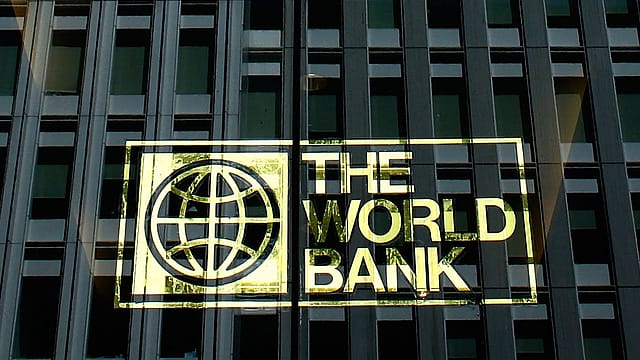Global growth to slow down to 2%; but India, China are exceptions: World Bank
ADVERTISEMENT

The World Bank has said that global growth will slow to 2% from 3.1% in 2022, with several factors including high inflation and crude oil prices, and recent banking sector stress weighing on the second-half outlook.
The global agency has said India continues to be one of the fastest-growing major economies in the world, and that it is looking for a growth of 6.3% in FY23/24. Though India is expected to feel some effects from the global slowdown. "It will take capital market liberalisation for India to achieve their 8% growth goal," said World Bank Group president David Malpass.
The statement comes after the World Bank slashed India's GDP growth forecast to 6.3% for 2023-24 from 6.6% projected earlier, citing lower consumption growth and challenging external conditions.
He said apart from India, the only country that is an exception to the global slowdown is China. China’s GDP growth is rebounding to over 5% in 2023, with strong private investment. I note the stability of China’s currency and the countercyclical nature of its monetary policy. I was in China in December as they ended the lockdown. The government is encouraging growth in services, especially health care and tourism.
Notably, this Wednesday, the World Bank chief will co-chair the Global Sovereign Debt Roundtable with Kristalina Ivanova, MD, International Monetary Fund, and Finance Minister Nirmala Sitharaman. The agenda is to share information earlier in the debt restructuring process and work toward comparable burden sharing. There will also be the discussion of a formal standstill on debt service at the request of the debtor country and of the treatment of arrears and penalties.
Malpass also said if looked at developing countries excluding China, a slowdown to about 3.1% in 2023 from 4.1% in 2022 is expected.
The World Bank worries the slow growth will persist for years for many developing countries, increasing fiscal stress and debt problems. "It’s a combination of weak investment, higher interest rates, and relatively weak growth in the advanced economies."
Malpass said the danger is acute due to inflation, currency depreciation, rising debt service costs, and the collapse of international reserves. The diversion of natural gas to Europe presents grave obstacles to developing country production of electricity, fertiliser, and food, he opined.
"These problems are severely constraining future growth and deepening inequality and fragility for developing countries."
According to the World Bank chief, there are two main factors that are causing the global slowdown. First, the normalisation of interest rates after an artificial decade is near zero.
Secondly, he said the major problem is the available global capital is being absorbed by a narrow group of advanced economies, also called “sinkholes”, which have extremely high government debt levels.